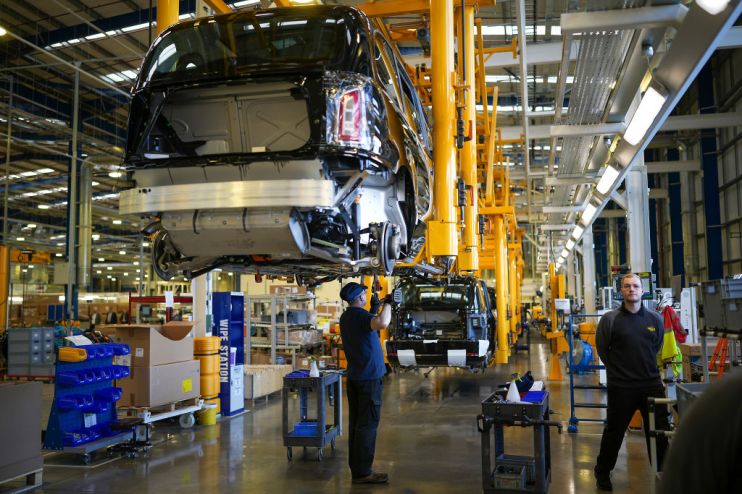Car industry: Throwing money at the issue won’t solve UK’s post Brexit problems, think tank warns

The UK must not enter a subsidy race with the US and EU to save its auto industry from problems such as a flagging electric vehicle (EV) segment and a post-Brexit drop in investment, an influential Tory think tank has warned.
A new report from the centre-right Policy Exchange argues that targeted government subsidies will not be enough to help the sector, which is “falling behind European competitors in the transition to electric cars” and has been made a “less attractive investment location for non-British manufacturers” by Brexit.
“Where there are obstacles which discourage investment, such as high energy costs, the government should seek to remove or mitigate them. But decisions by the multinationals will be determined as much by their overall view of business conditions in the UK, including the availability of skills and the market for their products, as by direct government support,” Policy Exchange’s head of industrial policy Sir Geoffrey Owen said.
Chancellor of the exchequer Jeremy Hunt offered £500m in subsidies to tempt Tata to locate it in the UK over Spain.
The report, however, urged caution, arguing that although “a favourable Tata decision will be welcome news”, UK car makers will still be a “long way behind their European competitors”, citing that the EU has 25 EV battery plants operational, planned or under construction, as opposed to the UK’s two.
Poor policy making to blame?
Policy Exchange said that post-Brexit changes and government flip-flopping on policy have weighed down the sector and that, unless these are resolved, increasing government support won’t be enough to prompt a bounceback.
“Of great importance for potential investors, domestic and foreign, is the consistency of government policy. Between 2010 and 2019, successive governments pursued a broadly similar approach to the auto industry,” Owen said.
“But the erratic conduct of industrial policy since then, including the scrapping of Theresa May’s industrial strategy in 2021, has been confusing for business, and not conducive to new investment.”
Susannah Streeter, head of money and markets at Hargreaves Lansdown, echoed the think tank’s view.
“The lack of long-term effective industrial strategy, partly due to the past few years of political instability appears to be hampering Britain’s attempt to protect the car industry, give confidence to investors and power up growth,” she said.
“Instead, the government seems to be taking one step forward and two steps back, partly hamstrung by post-Brexit legislation, while at a disadvantage as the US has poured billions of dollars into green investments.”
Streeter told City A.M. that, rather than pay expensive subsidies in a “continual game of catch up” with the US, Britain would “be wise to unravel Brexit red tape and develop closer ties with European nations”, where gigafactory developments are “further advanced”.
“This would help ensure supply chains stay and might stop global motor manufacturers upping sticks and relocating,” she said.
A spokesperson for the Department for Business and Trade said: “We have always been clear that we do not want to enter a global subsidies race. While countries develop measures to meet net zero objectives, it is crucial that we do so in a way that does not distort markets and suppress innovation.”
“We are committed to growing our electric vehicle supply chain in the UK – working with industry to unlock private investment and develop cutting-edge automotive technologies through the Automotive Transformation Fund and projects such as the Advanced Propulsion Centre and Faraday Battery Challenge.”
“So far, our funding has helped secure key investments, including the £1bn electric vehicle hub in Sunderland in partnership between Nissan and Envision AESC and Ford’s investment of £380 million in Halewood.”